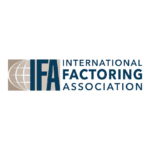
How to Choose the Right Business Structure for Your Staffing Agency
The business structure you choose for your staffing agency will have far-reaching consequences, so choose carefully.
This decision will affect your personal legal liability, how the firm can raise the money it needs to operate, the paperwork you will be required to file and what you — and your firm — will pay in taxes.
Before choosing a structure, it’s important to create a business plan. It is the blueprint you’ll follow to build your company, and it provides a clear picture of where you want to be. It outlines all of the major aspects of the business and keeps you and your associates focused and aligned with your goals.
Common Business Structures
The two most common kinds of business structures for staffing agencies are:
- A limited liability company. An LLC, in most instances, protects the business owner’s personal assets — such as your car, house and retirement savings account — from business liability in the case of bankruptcy or lawsuits. In addition, profits and losses can be passed through to personal income, and as a result, that income isn’t subject to corporate taxes. However, with an LLC, structure, the owner is considered self-employed, and as a result, must pay self-employment taxes.
- An incorporated company, or a corporation. In this structure, the business is a legal entity that is separate from those who form it. In this instance, the company — not the individual owner — is liable for its own debts and pays taxes on its earning. This structure also limits individual liability in the case of a lawsuit. To form an incorporated company, an owner must submit an application to the secretary of state and file of articles of incorporation.
The U.S. Small Business Administration has a good overview with detailed explanations of each business structure. And, to help take some of the complexity out of the decision, SCORE, a nonprofit organization made up of a network of volunteer and expert business mentors, offers a straightforward, pros-and-cons look at the common business structures.
Marco Carbajo, writing for the SBA in “Choosing the Right Business Structure,”offers three factors to consider when making the decision.
- Business taxes
- Industry
- Personal liability
There are various decisions to make when setting up a staffing firm, including how to price your staffing services and how to get the working capital you need for growth. The resources provided above should set you on the path to making the best decision for your business — and for yourself.
Do you have more questions about how to structure your staffing firm or agency? Contact us today.
 info@encore-funding.com
info@encore-funding.com 216-998-9900
216-998-9900



